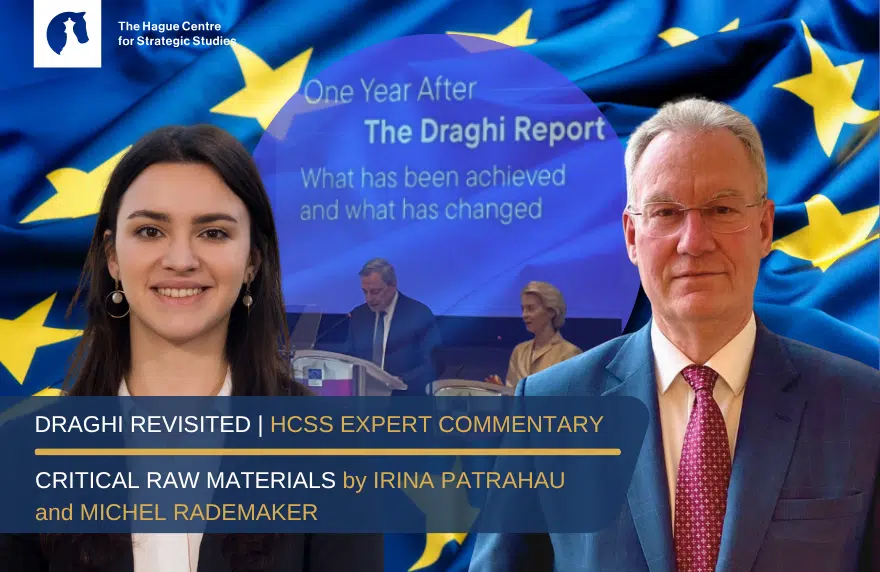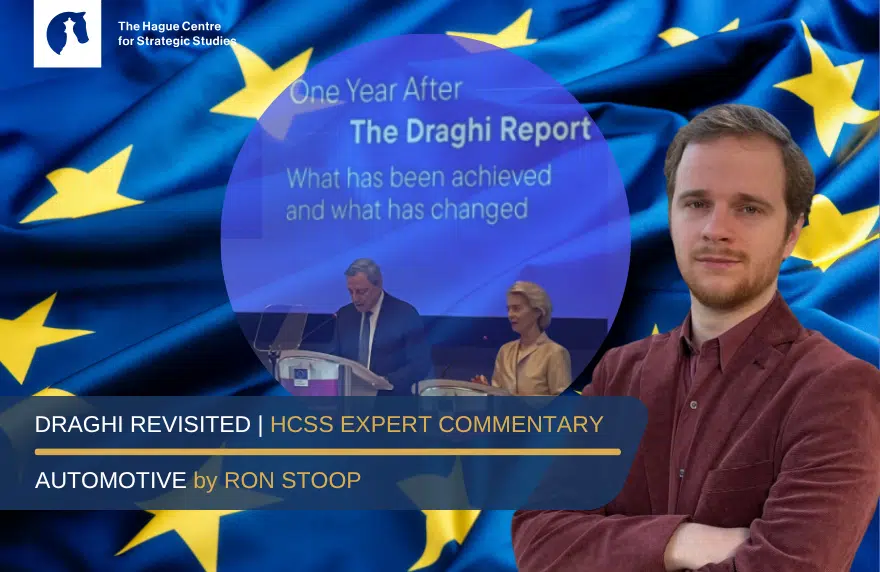One year after Mario Draghi’s landmark report on Europe’s economic future, HCSS launches the second edition of its Draghi Report Series, where our analysts revisit Draghi’s warnings sector by sector.
Despite political attention, Europe still struggles with dependencies in defence, raw materials, cleantech, and digital domains. Global tensions with both China and the US are mounting, and Europe’s trade model faces unprecedented pressure. Progress has been uneven and often too slow due to coordination, financing and other internal barriers.
Last year, Ron Stoop and Berend Kwak examined the long-term implications of Draghi’s recommendations in a series of interviews with our experts. Now, they return to assess how far Europe has come in addressing his urgent call to secure industrial, technological and economic sovereignty.
For the third article of our Draghi Report Revisited series, strategic analyst Benedetta Girardi takes a closer look at Europe’s semiconductor ambitions.
Since the publication of the Draghi Report, what concrete steps have been taken at the EU and member state level in the semicon sector, and how effective have they been so far?
Benedetta Girardi: Over the past year, the EU has attempted to take concrete measures to advance the Chips Act and boost the Chips Joint Undertaking, especially with the aim of mobilising public-private funding frameworks. A notable Member States’ initiative is the creation of the Semiconductor Coalition to push coordination on semiconductor matters. These steps have strengthened R&D pilots and improved alignment, but gains have overall been marginal. In 2025, we actually witnessed some harsh setbacks in the semiconductor sector, such as Intel pulling the plug on its planned chip fabs in Germany and Poland. Securing private co-investments has also proven more difficult than what the Draghi report let on last year, as we saw with the suspension of STMicroelectronics and GlobalFoundries’ €5.7 billion plan to build a semiconductor fab in France. Overall I would thus say that despite the push given by the EU to implementation of the Chips Act, the results have been mixed.
Where do the biggest gaps lie between political ambition and practical implementation, and why do they exist?
Benedetta Girardi: I think the examples I mentioned above stress the fundamental gap between ambition and implementation: funding is still scarce and Europe still lags behind in manufacturing with respect to other global giants. In particular, I think the difficulties in securing private funding are evident, and drag the overall efforts down. There is thus a disconnect between the political ambitions of advancing manufacturing in Europe and the actual availability of funds to do so. Labour costs and slow regulatory processes make investment in Europe not as attractive as elsewhere in the world, and this contributes to the overall gap in capabilities.
Looking ahead, what should be the EU’s top two or three priorities to stay competitive, and where might it make sense to scale back?
Benedetta Girardi: First, the EU should focus on boosting investment in the sector by promoting greater alignment between EU, national governments, and the private sector. This might mean having some harsh conversation and making uncomfortable decisions, but it needs to happen to patch up the disconnect between private and public sectors and thus encourage public-private funding. Second, it should invest in creating a skilled workforce with sufficient numbers to actually respond to demand needs on the production processes side. Lastly, the EU should further invest in partnerships with other small and middle powers who are drivers of the sector, such as the ROK and Taiwan. With growing uncertainty related to ‘America First’ policies, the EU needs to look elsewhere than the US to advance its semiconductor industry.
If we meet again in a year, what single measurable outcome would convince you that Europe is on the right track in this sector?
Benedetta Girardi: I will be happy if I see a confirmed final investment decision for a major capital project in Europe (>€10bn) derived by public-private funding and accompanied by an EU-level fast-track coordination mechanism in operation. This would tell me that investments are finally coming in, and that EU bureaucracy and regulations are managed appropriately for such a strategic sector.








